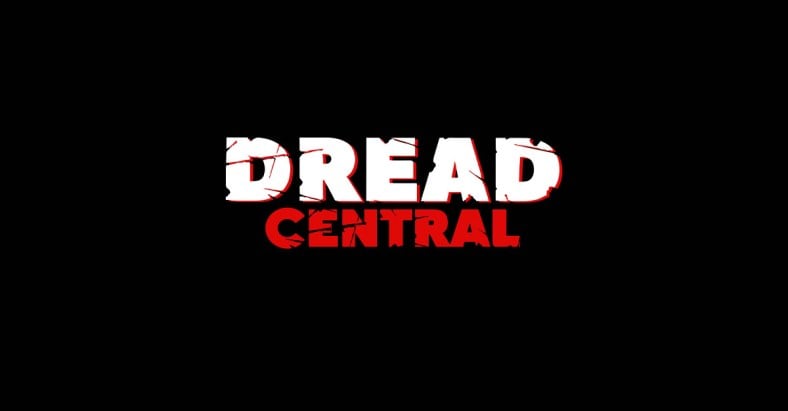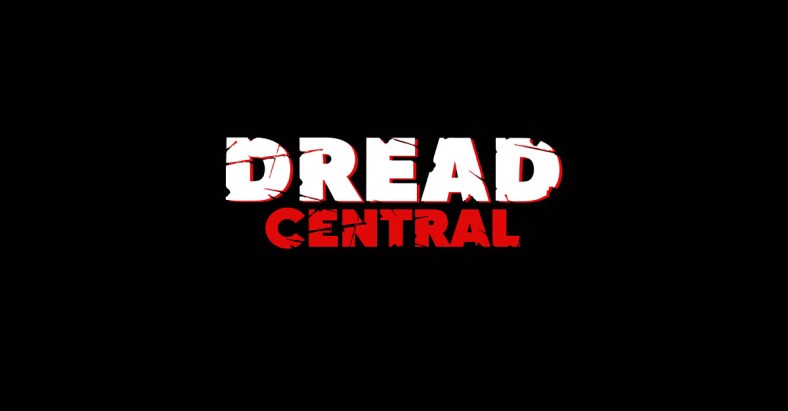WTF?! NYC Births Another Genre Film Fest

Looking over the lineup of the debut edition of NYC’s newest international film festival, you may indeed exclaim, “What the F***?!” That’s just the reaction you’ll have experiencing the offbeat movies playing What the Fest?!, which invades the IFC Center (323 Sixth Avenue, at West 3rd Street) this Thursday, March 29, through Sunday, April 1. The strong femme-centric program opens with Coralie Fargeat’s brutal Revenge and closes with Jenn Wexler’s SXSW midnighter The Ranger.
The eclectic dozen film showings also include the latest documentary by Basket Case guru Frank Henenlotter (the world-premiering Boiled Angels: The Trial of Mike Diana); two winners from IFC Midnight (Lowlife and Ghost Stories); and unique films from the U.S. (The Endless), Norway (Valley of Shadows), Switzerland (Blue My Mind) and Indonesia (Satan’s Slaves), among others. Screenings will be celeb-packed and boasting fun pre-show tie-ins.
Dread Central got the skinny on What the Fest?! from Creative Director Maria Reinup, a veteran of several European genre film festivals.
TONY TIMPONE: In a crowded festival market like NYC, what will make What the Fest!? stand out?
MARIA REINUP: All of the films we play at What the Fest!? have a big or small “wtf” element in them—films where filmmakers have dared to stay true to their vision and where there is something wild or uncanny in their way of storytelling. May it be the subject matter, story itself or the filmmaking style. The program offers a lot to those in need with a diverse program. But what will be special and something we will work over the years to become exceptional is that many of the films feature a little special event. For example, with Curse of Snakes Valley, I will introduce some of the horrifying animations kids were shown back in the Soviet Union for “entertainment,” which gave them sleepless nights for weeks. We collaborate with the Miskatonic Institute of Horror Studies as our Official Educational Partner, which is an incredible institution of genre lovers, and their speakers Sukhdev Sandhu and Samm Deighan have prepared a special talk to introduce the film. For Lowlife, we have shouted out that everyone who comes to the screening dressed as luchador will get in for free. We celebrate great movies on the big screen and more, as we will do everything to build this festival into an experience of a kid.
Related Story: What The Fest!? 2018 – Full Slate of Films Revealed

TT: What will WTF do differently than the other genre festivals?
MR: I’d love that we could broaden the way we can experience movies and the way we come together in the comforting darkness of cinema.
TT: As a programmer, what were you looking for?
MR: As a programmer, I am looking for cerebral films. Films that ask me a question, make me puzzled, that revoke something in me or movies that offer that ultimate cinematic experience only films can and which is the reason why I love cinema in the first place. The greatest genre films for me are the ones that on the surface are excellent fantasy or scary movies, but if you start digging, you get a sense of another layer that speaks about a truth of a kind. I love The Babadook because it is a stylized horror film that looks stunning and spooks the shit out of you, but actually talks about two people who are unable to deal with loss. And once we do not deal with loss, it takes another form and that form finds us and makes us deal with it. I loved Nightcrawler because it made me look in the mirror and ask again why the type of news that are the most popular ones are out there. And It Follows because under a fun flick there is a serious topic hidden. And I love Valley of Shadows, which we are playing in the U.S for the first time, because almost every single frame in this film is a like a painting and it really asks a lot from its viewer. Simply put, films I do not forget so fast. Films that I get sucked into and go for a voyage with. Films that I feel gave me more than just the satisfaction of being glued to the screen. Because mindless entertainment is everywhere and I am not sure if there is an excuse for it anymore. Genre films or films with genre elements are to me one of the few last resorts where one can make both art and entertainment and still have that special layer hidden within, and I really love that.
TT: How do Ghost Stories and Revenge break out of their typical sub-genre categories (ghost and revenge films)?
MR: Revenge is fresh and has full confidence in what the film wants to achieve. It is portrayed through and through of a (bloody) female lens giving a new way to look at some character types we know from similar movies or even angles [writer/director Coralie Fargeat] has chosen how to portray the protagonist, putting us in the seat of the men in the house, asking “You really fucking think you are entitled to this?” But it is also a proper powerhouse of a film in similar vain of the French new horror wave, without losing the direction even for a second.
Ghost Stories does not really break out in my mind, but it is an anthology that has grown out of a major stage hit by the same authors. One can feel how Andy Nyman and Jeremy Dyson had fun in creating it looking back to the British horror classics, giving it a more modern form to play with the ghost stories.
TT: What new spin does Satan’s Slaves bring to the Asian horror wave?
MR: Satan’s Slaves comes with some undeniable facts—it is a remake of an already successful film, but unlike the not so successful tradition of making an Asian horror film anew, this one went crazy in the local box office and secured theatrical distribution in quite a few territories. [Director] Joko Anwar has not only improved the script and some important plot points, but made the film lush and easily appealing to anyone seeking a really fun ride.
TT: What made you choose one retro title with so many new releases to pick from?
MR: At Haapsalu Horror and Fantasy Film Festival (Estonia), the programming aspect of playing retro titles has had big importance to the program and our audience in general due to the fact that most of the golden era midnight movies have been forbidden in the USSR. And introducing the films that are the “source code” of modern genre films contextualizes and brings unity to the program. There is something very natural in pairing in your mind new titles with an old-timer that are in “conversation” with each other. Elsewhere, unless it is a crisp new restored 35mm print or special screening with guests or sing-along whatnot, the retro titles actually do not play well by the means of filling the venues or bringing back your investment in playing the film (for example, when shipping 35mm prints to Europe for a one-time screening). I personally have grown to prefer to rather pick new and fresh films, but retro films are a part of history and you do not fully grasp the current time without being aware of the past. So for the very same natural reasons why retro films find their place at festival programs, I decided to have one retro film this year at What the Fest!? I just felt that bringing a creative in from an exotic place like Estonia should somehow be reflected in the program. I cannot think of a better title than the fully restored “Soviet Indiana Jones” made by Polish cult director Marek Piestrak that has been unseen in U.S because it gives perspective to the whole program.
Not only showcasing the cinema history from the part of the world I come from, but suddenly you have a new film like The Endless that is made by American indie filmmakers where they direct, shoot and perform the leading roles, playing next to a film that was a massive box office hit in countries that were occupied since the time indie filmmaking really started growing its roots. Maybe it is only me, but I see these threads of context when I look at the program as I see it as a whole, where ideally all the films are in conversation with each other.
TT: Same with your Mike Diana documentary…
MR: Boiled Angels speaks of the first person to receive a criminal conviction in the United States for artistic obscenity. I found it fascinating how the main subject of the film—Freedom of Speech (and to create the kind of art true to your vision)—puts all of our films into a much wider context. Also [director] Frank Henenlotter is one of the most prominent genre filmmakers in New York and IFC Center is known as a loved cinema for NYC premieres. It is bringing many good things to home.
TT: Do films like The Ranger speak to the #TimesUp movement or any others?
MR: I cannot speak for the films; they will speak for themselves. But as a Head of Programming and a Creative Director, I can say that if you as a festival director, programmer, curator… you as a person in a position of power, especially responsible for using a medium that allows wider audiences to experience a perspective of a kind, if you are not making your best effort to make sure that either in what you curate or in your team (preferably both) you have not done your best in whatever are the conditions, to make sure that you have taken the responsibility to show the world as diverse as it is, then yeah, your time is up.
TT: Which “discovery” are you most proud of this year?
MR: I love Blue My Mind. Even if it is not a discovery really. I just started watching it and I was pulled into the world immediately. I found myself falling for the characters and to the core of my cells, I found myself touched by this film. I also fell for the filmmaking—one can see how the director [Lisa Brühlmann] looks at the theme of the film and her subjects with respect and loving eyes, never giving in to the style established early on and in overall, pulling off a truly strong little film. I was really surprised to find out it was her school graduation film made with her course mates. Not every time you get to see the film that establishes a filmmaker instantly. But to be honest, having only one film that has played in NYC before and for the timeframe we had, I am proud of the whole program.
TT: What are the future plans for WTF!?
MR: I’d love to play with the idea of “experience” in a wider perspective. Step by (baby) step make music, performance, video games and VR a part of the festival. Despite my heart belonging to movies, I feel for many of the film lovers, cinema is like some sort of holy cow, conversations about games and movies emerging into one feel unwelcome and no one believes in VR until everyone has a headset at home, because only then it has truly gone to masses… Maybe it is true, but the fact for now is—the traditional film business is changing and for now the answer into what exactly is still unknown. Progress is a natural part of humanity; it is what has brought us to where we are now. Anyone who thinks we are just going to be like we are now until forever, is maybe not giving it a really good thought. What is the next cinema-driven experience that reminds us how amazing it is to feel and be alive?

Categorized:News

